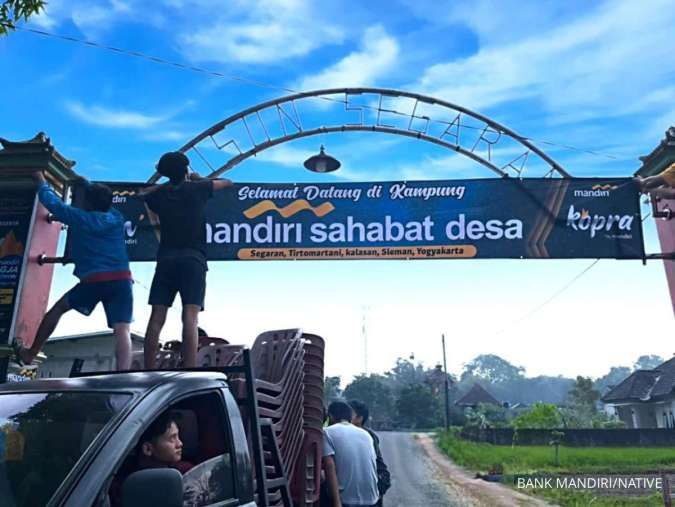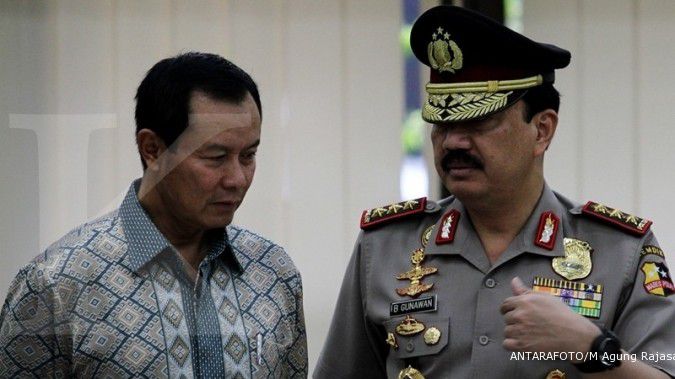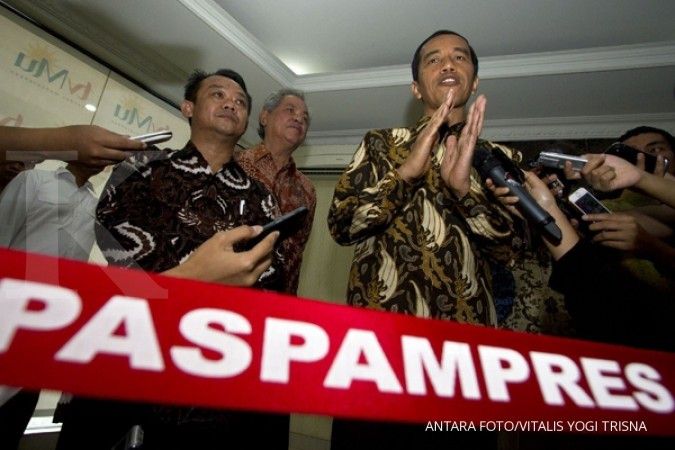JAKARTA. Although the House of Representatives has yet to review the record of the only candidate for leading the National Police, Comr. Gen. Budi Gunawan, lawmakers have expressed early signs of a green light despite mounting rejections from anticorruption activists over Budi’s questionable nomination. Some lawmakers, such as Bambang Soesatyo from the Golkar Party, have openly expressed their firm support for President Joko “Jokowi” Widodo’s choice of Budi, highlighting that Budi, the current chief of the National Police’s education and training division, has fulfilled the requirements to take over the position from Gen. Sutarman who is expected to retire in October. “He [Budi] was the head of the regional police twice,” Bambang said. The lawmaker from the House Commission III overseeing law and human rights, which will conduct the confirmation hearing, further stressed his party’s blessings for the candidate, saying, “Golkar promotes the nomination of Comr. Gen. Budi Gunawan, which has been proposed by the President, to replace Gen. Sutarman to lead the National Police”. Although the oldest political party recently saw different opinions from its executives regarding several issues related to the government’s policies as well as public affairs due to an ongoing fight over the party’s leadership, Golkar was united in the matter as its members, despite their allegiance, shared support for Budi. Concurring with Bambang, the treasurer of the Golkar faction led by Aburizal Bakrie along with the leader of the party’s rival faction, Agung Laksono, also lent their support to Budi, referring to the latter’s nomination as an “absolutely correct decision”. “Especially since the President proposed only one name. He [Budi] has also gone through the stages of the nomination process so it is right to choose him as chief of the National Police,” said Agung. Budi, a former adjutant of Megawati Soekarnoputri when she served as president between 2001 and 2004, has apparently also won nods from other lawmakers from both the Great Indonesia Coalition and the Red-and-White Coalition. However, very few of them explicitly expressed their approval in the way that Golkar leaders did, let alone offered the endorsement of their parties. “I know that he is a capable and intellectual person,” lawmaker Tjatur Sapto Edy of the National Mandate Party (PAN) said. Civil society groups fighting corruption that cite Budi’s controversial record have been harshly criticizing Jokowi for only submitting Budi’s name to the House even though there were four three-star generals recommended by the National Police Commission (Kompolnas), which has the authority to recommend police chief candidates to the President. In 2009, the Financial Transaction Reports and Analysis Centre (PPATK) included Budi among several generals whose bank accounts were allegedly linked to dubious sources. His wealth disclosure to the Corruption Eradication Commission (KPK) in 2013 revealed assets of around Rp 22.6 billion (US$1.8 million) although he earned a monthly salary of less than Rp 18 million as a three-star general. Activists have condemned Jokowi for bowing to elites within the ruling Great Indonesia Coalition led by the Indonesian Democratic Party of Struggle (PDI-P), because unlike the former selection process of his ministries, Jokowi exempted the KPK as well as the PPATK in Budi’s nomination process. “With the selection, it is apparent that Jokowi is powerless against political interests surrounding him,” activist Jeiry Sumampow told a discussion in Jakarta on Sunday, reiterating opinions previously shared by other activist organizations, including the Indonesia Corruption Watch (ICW). Jokowi’s choice of Budi is believed to be a decision imposed by the PDI-P’s chairperson Megawati. Budi is also known as a close confidant of Vice President Jusuf Kalla. Ronald Rofiandri from the Jakarta-based Center for Study of Law and Policy (PSHK) cited the confirmation hearing of Budi, which will take place in about two weeks, as the first test of the establishment of the two political coalitions in the House, which lawmakers claimed was relatively balanced. “We will see if the selection will end like business as usual as a result of the political interests within the legislative institution,” Ronald said. (Margareth S. Aritonang)
Lawmakers show early green light for Budi’s bid
JAKARTA. Although the House of Representatives has yet to review the record of the only candidate for leading the National Police, Comr. Gen. Budi Gunawan, lawmakers have expressed early signs of a green light despite mounting rejections from anticorruption activists over Budi’s questionable nomination. Some lawmakers, such as Bambang Soesatyo from the Golkar Party, have openly expressed their firm support for President Joko “Jokowi” Widodo’s choice of Budi, highlighting that Budi, the current chief of the National Police’s education and training division, has fulfilled the requirements to take over the position from Gen. Sutarman who is expected to retire in October. “He [Budi] was the head of the regional police twice,” Bambang said. The lawmaker from the House Commission III overseeing law and human rights, which will conduct the confirmation hearing, further stressed his party’s blessings for the candidate, saying, “Golkar promotes the nomination of Comr. Gen. Budi Gunawan, which has been proposed by the President, to replace Gen. Sutarman to lead the National Police”. Although the oldest political party recently saw different opinions from its executives regarding several issues related to the government’s policies as well as public affairs due to an ongoing fight over the party’s leadership, Golkar was united in the matter as its members, despite their allegiance, shared support for Budi. Concurring with Bambang, the treasurer of the Golkar faction led by Aburizal Bakrie along with the leader of the party’s rival faction, Agung Laksono, also lent their support to Budi, referring to the latter’s nomination as an “absolutely correct decision”. “Especially since the President proposed only one name. He [Budi] has also gone through the stages of the nomination process so it is right to choose him as chief of the National Police,” said Agung. Budi, a former adjutant of Megawati Soekarnoputri when she served as president between 2001 and 2004, has apparently also won nods from other lawmakers from both the Great Indonesia Coalition and the Red-and-White Coalition. However, very few of them explicitly expressed their approval in the way that Golkar leaders did, let alone offered the endorsement of their parties. “I know that he is a capable and intellectual person,” lawmaker Tjatur Sapto Edy of the National Mandate Party (PAN) said. Civil society groups fighting corruption that cite Budi’s controversial record have been harshly criticizing Jokowi for only submitting Budi’s name to the House even though there were four three-star generals recommended by the National Police Commission (Kompolnas), which has the authority to recommend police chief candidates to the President. In 2009, the Financial Transaction Reports and Analysis Centre (PPATK) included Budi among several generals whose bank accounts were allegedly linked to dubious sources. His wealth disclosure to the Corruption Eradication Commission (KPK) in 2013 revealed assets of around Rp 22.6 billion (US$1.8 million) although he earned a monthly salary of less than Rp 18 million as a three-star general. Activists have condemned Jokowi for bowing to elites within the ruling Great Indonesia Coalition led by the Indonesian Democratic Party of Struggle (PDI-P), because unlike the former selection process of his ministries, Jokowi exempted the KPK as well as the PPATK in Budi’s nomination process. “With the selection, it is apparent that Jokowi is powerless against political interests surrounding him,” activist Jeiry Sumampow told a discussion in Jakarta on Sunday, reiterating opinions previously shared by other activist organizations, including the Indonesia Corruption Watch (ICW). Jokowi’s choice of Budi is believed to be a decision imposed by the PDI-P’s chairperson Megawati. Budi is also known as a close confidant of Vice President Jusuf Kalla. Ronald Rofiandri from the Jakarta-based Center for Study of Law and Policy (PSHK) cited the confirmation hearing of Budi, which will take place in about two weeks, as the first test of the establishment of the two political coalitions in the House, which lawmakers claimed was relatively balanced. “We will see if the selection will end like business as usual as a result of the political interests within the legislative institution,” Ronald said. (Margareth S. Aritonang)




